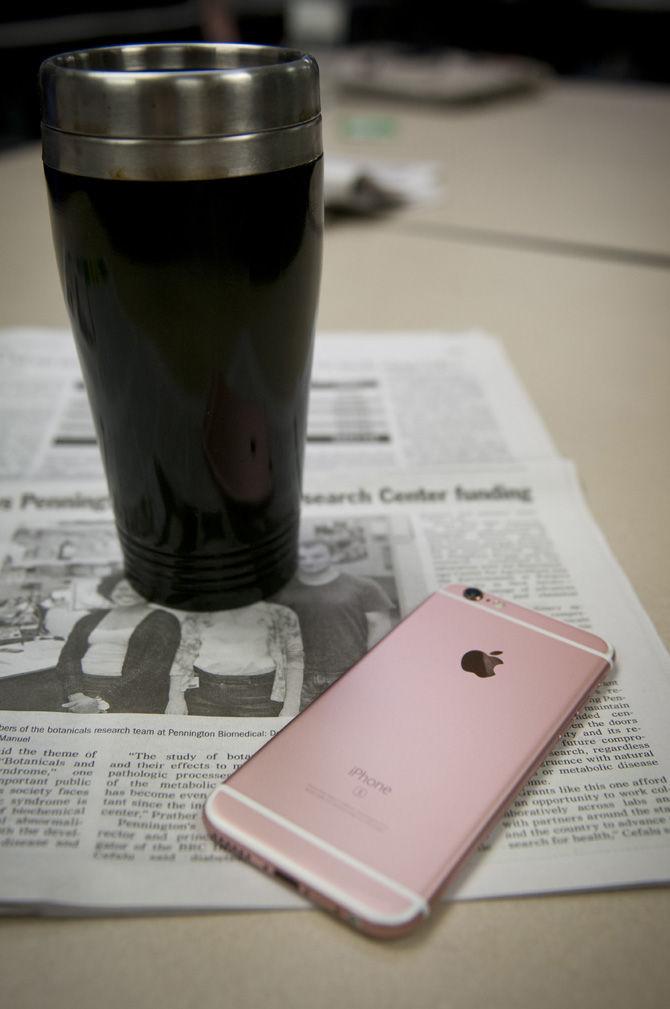If you can’t stay off your smartphone, there’s a good chance you’re dumb and lazy.
A 2015 University of Waterloo study of 660 individuals suggests this is the case. Whether you agree smartphones are making us dumb or not, you can’t deny we underutilize the greatest technology so far.
NASA’s operation lead of the Curiosity Mars rover, Devin Kipp, said the smartphones in our pockets are more powerful than the famous Mars rover. An iPhone 6 performs hundreds of thousands more calculations than Apollo 11, the spacecraft that put men on the moon.
If scientists can send Neil Armstrong to the moon with the computing power equivalent of a simple calculator, we can use our phones for more than playing “Flappy Bird.”
Correct smartphone use has countless applications in our lives. According to a 2015 Pew Research study, smartphone owners use their phones for online banking, getting health information, looking at real estate and taking classes.
Walking around with computers in our pockets provide ample opportunities to be more productive. There are plenty of apps out there to keep a healthy body and mind, organize your life and study more effectively. A couple years ago, I changed how I use my phone with great results.
Notecard and to-do-list apps played a large part in improving my GPA. I began meditating using several apps, notably improving in my life. Using apps such as “Pocket” changes my time wasted playing games, into time spent reading insightful articles.
Changing our view of smartphones from just communication devices to a tool that would make Captain Kirk jealous allows amazing changes to happen.
In a world where 45 percent of us feel we don’t have enough free time, changing our phone use could recapture lost time. A recent study found the average user looks at their smartphone 1,500 times a week, spending more than three hours on their phone a day.
Facebook is how most of us spend these three hours — this is an enormous amount of time we can better ourselves. Replacing one hour of Facebook with reviewing class notes has a substantial effect on your grades.
However, striving to be a perfect productivity machine is dangerous. A 2012 survey by the Center for Creative Leadership found 60 percent of smartphone-using professionals kept in touch with work for a full 13.5 hours per day.
Smartphone advancement makes employees feel they must be at their boss’ beck and call at any given moment. Whether answering emails while vacationing or editing on the bus, employees today feel they have less free time and more stress than ever before because their bosses are just a couple of taps away.
This is just one area of our lives where people feel they can’t disconnect from their phones anymore — almost 40 percent of smartphone users feel lost without them.
Knowing when to use our smartphones is key to effective use. The biggest mistake we’re all guilty of is reaching for our phones immediately after waking up. The average smartphone owner looks at their phone at 7:30 a.m, checking emails and Facebook before getting out of bed.
Putting down our phones is a difficult concept to learn when it feels like we’ve grown up with phones in our hands. However, studies show disconnecting causes people to feel less stressed — and has sparked a movement, albeit a crazy one, to live without cellphones.
If you’re looking for ways to improve your life, take a look at your cellphone use and make positive changes.
Jay Cranford is a 21-year-old finance senior from St. Simons Island, Georgia. You can reach him on Twitter @hjcranford.
Opinion: Millennials underutilize their smartphones
By Jay Cranford
November 9, 2015
A student uses her recently upgraded smartphone of choice on Wednesday, Oct. 7, 2015, in Hodges Hall.
More to Discover








